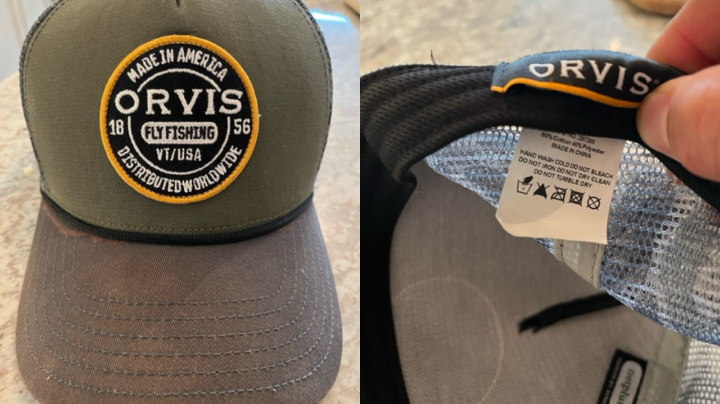
Why it’s hard to trace the origins of the stuff we buy

This month, Econ Extra Credit unpacked the 2021 documentary “Ascension,” a film that, among other artfully captured insights, shows viewers how and where a battery of household items are made — often by Chinese workers who put in very long hours hundreds of miles away from their families. The mug that holds your daily coffee, the socks on your feet, the case on your phone — there is a very good chance that one or all of these products were made in China.
“Made in” labels became a requirement for most products when Congress passed the Tariff Act of 1930 to discourage Americans from buying cheap imports. (Our Marketplace colleague Janet Nguyen recently wrote a fantastic in-depth explainer on the long and tangled history of country-of-origin labels.)
Many listeners and readers sent in reports of products with surprising manufacturing origins. Erin C.’s desk, which she bought on Etsy, came with a gold sticker that read, “Thanks for buying local!” The desk was made in South Africa. Clay B.’s Birkenstocks were made in Portugal, not the footwear manufacturer’s native Germany. When Quentin E. completed a finance internship in Dijon, he discovered that France’s most famous condiment relied on vinegar from the U.K., vegetable oil from the Netherlands and mustard seeds from Canada.
Several of you recounted attempts to buy American cars. No longer can one just assume that a U.S. automaker will be manufacturing its cars here. It’s a lesson Denise L. learned when she found out her Chrysler Pacifica was largely built outside the U.S. All is generally not as it seems in the vehicle space: Japan’s Honda makes 4 of the top 10 models on Car.com’s American-Made Index, which ranks car models based on how much of the final vehicle is made and assembled inside the U.S.
Many American companies outsource manufacturing to other countries to lower production costs. As Marilyn B. pointed out, the fashion brand Vera Bradley started as a “cottage industry in Indiana” and was a major employer in the Fort Wayne region. In 2008, it canceled its contracts with sewing companies in Indiana and moved most of the production of its bags, luggage and accessories overseas.
Interest in buying “American made” products has risen over recent decades. We heard from you about products you know are made inside the U.S., including bathing suit spinners made in South Elgin, Illinois; appliances made in New Bern, North Carolina; and pretzels made in Hershey, Pennsylvania.
At the same time, globalization has blurred the divide between imported and domestic goods; many goods today aren’t made in one country, but several. The Federal Trade Commission only recently started cracking down on misleading use of “Made in the USA,” which, up until 2021, was more guideline than guarantee.
Items branded “Made in America” are often made in China, as reader John S. discovered when he checked the tag on his Orvis cap. While he recognizes this is the global economy in action, he added: “doesn’t excuse the egregious liberty they took with my hat.” Suzy C.’s husband bought her a “homemade” quilt from a North Carolina store only to discover a “Made in China” tag. When they called the company to inquire about the quilt’s true origins, the owner said it was “homemade in China.”
Listeners Marianne S. and Henry R. both wrote to us to recommend another documentary, “Mardi Gras: Made in China,” which traces carnival beads to the source (and is available to stream on Kanopy).
Both China and the U.S. face rising social and economic inequality, something that struck Allen, who worked in both countries. “This film strengthens my view of how inequality plays an essential role [in] overconsumption, human rights abuse, [and] environmental destruction,” Allen wrote, adding that, having watched “Ascension,” he plans to renew his own efforts to mitigate those ills.
Thanks so much for sharing your thoughts with us for this month of Econ Extra Credit. Next week we’ll introduce our selection for July. Stay tuned!
There’s a lot happening in the world. Through it all, Marketplace is here for you.
You rely on Marketplace to break down the world’s events and tell you how it affects you in a fact-based, approachable way. We rely on your financial support to keep making that possible.
Your donation today powers the independent journalism that you rely on. For just $5/month, you can help sustain Marketplace so we can keep reporting on the things that matter to you.














